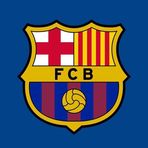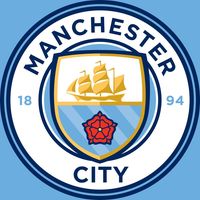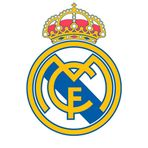The Ballon d'Or Drama: Rodri's Triumph Amidst Real Madrid's Boycott
October 29, 2024, 4:15 pm

Location: Spain, Catalonia, Barcelona
Employees: 201-500
Founded date: 1899
Total raised: $129.68M

Location: United Kingdom, England, Manchester
Employees: 501-1000
Founded date: 1894

Location: Spain, Community of Madrid, Madrid
Employees: 501-1000
Founded date: 1902
Total raised: $296.74M
In the heart of Paris, the Ballon d'Or ceremony unfolded like a gripping drama. On October 28, 2024, Manchester City’s Rodri emerged as the unexpected hero, claiming the prestigious award for the best player in the world. His victory, however, was overshadowed by a significant boycott from Real Madrid, a club that felt slighted by the decision.
Rodri’s achievement was no small feat. He had just led Manchester City to a fourth consecutive Premier League title and played a pivotal role in Spain’s Euro 2024 triumph. His performance on the pitch was nothing short of stellar. Yet, the spotlight shifted dramatically when Real Madrid announced their absence from the ceremony. The club, which had just secured the Liga and Champions League double, believed that their star player, Vinicius Junior, deserved the accolade.
The tension brewed hours before the event. Real Madrid declared that if Vinicius did not win, then the award should go to his teammate, Dani Carvajal. This statement echoed through the halls of the Chatelet Theatre, setting the stage for a night filled with controversy. Vinicius had scored 24 goals and provided 11 assists in 39 matches, leading his team to three titles. His contributions were monumental, yet the Ballon d'Or jury saw Rodri as the standout player.
The decision to award Rodri was met with surprise. Many had expected Vinicius to take home the trophy. The absence of Real Madrid’s delegation was a bold statement. They felt disrespected, believing that the award criteria should have favored their players. Their no-show was a protest, a refusal to participate in an event that they felt did not honor their achievements.
The Ballon d'Or is determined by an international jury of 100 journalists. The organizers, the Amaury group, insisted that the winner's name had not leaked prior to the ceremony. This assertion did little to quell the storm brewing around the event. Real Madrid’s absence was palpable, especially when the club was announced as the men’s team of the year. A video played in their honor, but no representatives were present to accept the accolade.
Rodri’s journey to the top was marked by hard work and resilience. Pep Guardiola, Manchester City’s manager, hailed him as the best in his position. Rodri’s ability to read the game, coupled with his crucial goals, made him indispensable. He had scored the winning goal in City’s first Champions League victory in 2023 and had continued to deliver for both club and country. His presence on the field was a stabilizing force, as evidenced by City’s struggles in his absence.
The night also celebrated the achievements of women in football. Aitana Bonmati of Barcelona won the women’s Ballon d'Or for the second time, joining the ranks of elite players. Her team had swept every trophy available, showcasing the growing prominence of women’s football. Bonmati’s success was a reminder of the strides being made in the sport, even as the men’s game grappled with its own controversies.
As the ceremony concluded, the air was thick with mixed emotions. Rodri stood proudly with his trophy, a symbol of his hard work and dedication. Yet, the shadow of Real Madrid’s boycott loomed large. The drama of the night highlighted the complexities of football politics. Awards are not just about individual talent; they are also about perception, respect, and recognition.
The Ballon d'Or is more than a trophy. It is a reflection of a player’s impact on the game. Rodri’s win was a testament to his abilities, but it also sparked a conversation about fairness and recognition in football. Real Madrid’s protest was a reminder that the sport is as much about pride as it is about performance.
In the end, the Ballon d'Or ceremony was a microcosm of the football world. It showcased the highs and lows, the triumphs and disappointments. Rodri’s victory was a bright spot, but the underlying tensions served as a reminder that the beautiful game is often marred by controversy. As the dust settles, one thing is clear: the conversation about respect and recognition in football is far from over.
The night in Paris will be remembered not just for Rodri’s triumph, but for the drama that unfolded. It was a night of celebration, but also a night of reflection. The world of football continues to evolve, and with it, the narratives that shape its history. The Ballon d'Or remains a coveted prize, but it is also a battleground for respect and recognition. As players strive for greatness, the politics of the game will always play a role in who stands atop the podium.
Rodri’s achievement was no small feat. He had just led Manchester City to a fourth consecutive Premier League title and played a pivotal role in Spain’s Euro 2024 triumph. His performance on the pitch was nothing short of stellar. Yet, the spotlight shifted dramatically when Real Madrid announced their absence from the ceremony. The club, which had just secured the Liga and Champions League double, believed that their star player, Vinicius Junior, deserved the accolade.
The tension brewed hours before the event. Real Madrid declared that if Vinicius did not win, then the award should go to his teammate, Dani Carvajal. This statement echoed through the halls of the Chatelet Theatre, setting the stage for a night filled with controversy. Vinicius had scored 24 goals and provided 11 assists in 39 matches, leading his team to three titles. His contributions were monumental, yet the Ballon d'Or jury saw Rodri as the standout player.
The decision to award Rodri was met with surprise. Many had expected Vinicius to take home the trophy. The absence of Real Madrid’s delegation was a bold statement. They felt disrespected, believing that the award criteria should have favored their players. Their no-show was a protest, a refusal to participate in an event that they felt did not honor their achievements.
The Ballon d'Or is determined by an international jury of 100 journalists. The organizers, the Amaury group, insisted that the winner's name had not leaked prior to the ceremony. This assertion did little to quell the storm brewing around the event. Real Madrid’s absence was palpable, especially when the club was announced as the men’s team of the year. A video played in their honor, but no representatives were present to accept the accolade.
Rodri’s journey to the top was marked by hard work and resilience. Pep Guardiola, Manchester City’s manager, hailed him as the best in his position. Rodri’s ability to read the game, coupled with his crucial goals, made him indispensable. He had scored the winning goal in City’s first Champions League victory in 2023 and had continued to deliver for both club and country. His presence on the field was a stabilizing force, as evidenced by City’s struggles in his absence.
The night also celebrated the achievements of women in football. Aitana Bonmati of Barcelona won the women’s Ballon d'Or for the second time, joining the ranks of elite players. Her team had swept every trophy available, showcasing the growing prominence of women’s football. Bonmati’s success was a reminder of the strides being made in the sport, even as the men’s game grappled with its own controversies.
As the ceremony concluded, the air was thick with mixed emotions. Rodri stood proudly with his trophy, a symbol of his hard work and dedication. Yet, the shadow of Real Madrid’s boycott loomed large. The drama of the night highlighted the complexities of football politics. Awards are not just about individual talent; they are also about perception, respect, and recognition.
The Ballon d'Or is more than a trophy. It is a reflection of a player’s impact on the game. Rodri’s win was a testament to his abilities, but it also sparked a conversation about fairness and recognition in football. Real Madrid’s protest was a reminder that the sport is as much about pride as it is about performance.
In the end, the Ballon d'Or ceremony was a microcosm of the football world. It showcased the highs and lows, the triumphs and disappointments. Rodri’s victory was a bright spot, but the underlying tensions served as a reminder that the beautiful game is often marred by controversy. As the dust settles, one thing is clear: the conversation about respect and recognition in football is far from over.
The night in Paris will be remembered not just for Rodri’s triumph, but for the drama that unfolded. It was a night of celebration, but also a night of reflection. The world of football continues to evolve, and with it, the narratives that shape its history. The Ballon d'Or remains a coveted prize, but it is also a battleground for respect and recognition. As players strive for greatness, the politics of the game will always play a role in who stands atop the podium.